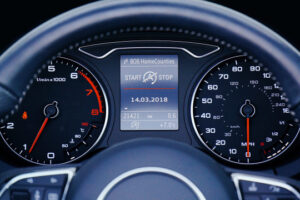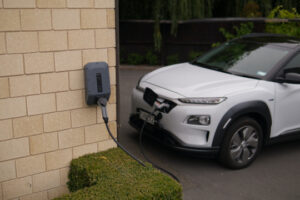Buying a car is an exciting time, but it comes with a lot of research to make sure you get the best fit for your needs. Today, we will answer one common question that prospective car owners have – is there a best time to buy a car?
 What Is The Best Time To Buy A Car?
What Is The Best Time To Buy A Car?
There are actually several times throughout the year that buyers can find good deals on new and used cars.
October, November, and December are typically good bets for low prices and good deals if you’re in the market for a vehicle. During these months, dealerships are looking to move old inventory and make room for newer models.
Additionally, as people are buying out old inventory, they often trade in their old ride. As such, October through December is an excellent time to look for used vehicles.
Dealerships have monthly sales metrics to meet, so you have a greater chance of getting a strong discount if you shop towards the end of the month. The end of the quarter is another good time for the same reason.
Holidays such as New Year’s Eve and Black Friday are two good days to purchase a car.
- New Year’s Eve combines the end of the quarter, end of the month, and end of the year for dealerships looking to meet their sales metrics in addition to other holiday incentives on offer.
- Black Friday is a good opportunity to find holiday deals as dealerships clear out old inventory for new models. You may also be able to get a substantial discount on the outgoing year’s model.
Keep an eye out for deals on long weekends, like Labor Day, Fourth of July, and Presidents Day, as some dealerships may take advantage of long weekends to boost their sales.
 The Worst Time to Buy a Car
The Worst Time to Buy a Car
There are several times throughout the year where it may be best to wait before you buy a vehicle.
At the beginning of the month or quarter, dealerships are less likely to negotiate deals as they still have plenty of time to meet their sales quotas.
Saturdays are a popular day to shop; however, dealerships are typically quite busy, and your salesman has less time to negotiate with you on pricing. They may be more inclined to let your potential purchase go in favor of someone who is ready to make a purchase.
Considerations for Waiting to Buy a Car
If you’re in a situation where you can wait on a new ride, you have a strong chance of getting an excellent deal on your new wheels. However, there are some situations where you cannot wait for the best time to buy a car.
- Your car’s repair costs are significantly higher than the value of the vehicle
- Your vehicle is totaled during an accident
- Severe weather has caused damage to your car, such as flooding or falling branches
- Your car poses a safety hazard (eg. the seatbelts are broken and you cannot get a replacement)
In these cases, it may be time to invest in a new ride sooner rather than later. Additionally, if you find your dream car even though the price isn’t ideal, it may be a good idea to grab it while it is still available.
Keep Your Car In Top Shape With T3 Atlanta
Whether you’re looking to repair your existing car or make sure your new vehicle stays in top shape, T3 Atlanta can help. Our team is ready to service your Nissan, Infiniti, Toyota, or Lexus vehicle in the Atlanta area. Give us a call to book an appointment today!
 1. Make Sure There Are Activities For The Whole Family
1. Make Sure There Are Activities For The Whole Family 3. Bring Music, Podcasts, Or Audiobooks
3. Bring Music, Podcasts, Or Audiobooks 5. Prepare A Car Emergency Kit
5. Prepare A Car Emergency Kit 1. Keep Your Car Cool
1. Keep Your Car Cool 3. Wax Your Car
3. Wax Your Car Facts and Myths About Engine Idling
Facts and Myths About Engine Idling How Much Idling Is Acceptable?
How Much Idling Is Acceptable? What is a Title Lien?
What is a Title Lien? Is It Worth Buying a Car With a Title Lien?
Is It Worth Buying a Car With a Title Lien? Challenges of Electric Vehicle Owners Who Live in an Apartment Complex
Challenges of Electric Vehicle Owners Who Live in an Apartment Complex Practical (and Legal) Ways to Charge An Electric Vehicle in an Apartment Complex
Practical (and Legal) Ways to Charge An Electric Vehicle in an Apartment Complex Why Should You Consider Buying Your Car Online?
Why Should You Consider Buying Your Car Online? Verify Seller Information
Verify Seller Information Why Should You Evaluate A Car’s Safety?
Why Should You Evaluate A Car’s Safety? Vehicle Safety Ratings
Vehicle Safety Ratings Why Sell Your Car Online?
Why Sell Your Car Online? Take Professional Photos
Take Professional Photos 1. Inspect The Visible Damage
1. Inspect The Visible Damage 5. Have Your Car Towed For Inspection
5. Have Your Car Towed For Inspection








